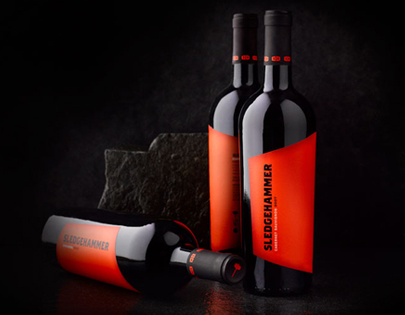Investing
How to spot a wine investment scam

The growing popularity of wine investing has led to a surge in fraudsters. Make sure you don’t get caught out.
Wine fraud is arguably one of the oldest cons around. For years, fraudsters have swapped the labels on cheap bottles for more high-brow names.
Now, as the popularity of investing in fine wine continues to grow, so too does the number of con artists looking to take advantage.
Investing in fine wine has become popular over the past decade as investors seek alternative shelters for their money away from the ups-and-downs of the stock market.
A recent BBC investigation estimated that as much as £100m may have been lost by investors over the past four years, making this form of investment a very risky one; not just in terms of financial risk.

Wellness and wellbeing holidays: Travel insurance is essential for your peace of mind
Out of the pandemic lockdowns, there’s a greater emphasis on wellbeing and wellness, with
Sponsored by Post Office
According to global security company red24, apart from the loss of hard earned cash, criminals seek personal details and sell them on to other criminals after they are done using them.
red24 has been involved in several investigations of wine investment scams recently. This type of scam follows the usual pattern of cold calling the client. The victim is then pressed into making an investment with the promise of large returns.
Victims are continually called with offers on ‘great deals’ and ‘not-to-be-missed opportunities’. The scam can go on for weeks or months and the victim will receive many calls at all times of the day and night. Many victims are targeted because of their age and financial status.
The victim receives the paperwork and sometimes the wine too, often with everything appearing normal; that is until the victim decides to cash in their investment.
It is at this stage the fraudster prolongs the procedure with excuse after excuse such as ‘we would advise you to wait three weeks for a better price’ or ‘there is no one buying this wine at the moment’.
Alternatively, the company suddenly vanishes or goes in to liquidation. Some investors have lost as much as £300,000 on their investment.
So, like any other investment venture, doing research and choosing the right people to invest with are key to not falling into one of these traps.
But how do you tell who is a reputable investment grade wine seller?
Peter Shakeshaft of the Wine Investment Association says: “First and foremost look for Wine Investment Association membership. Look out for the kite mark. To be a member of the association, companies have to go through a rigorous checklist, and this is added security.
“Another thing is that it’s very difficult for companies to get credit card or debit card access and if investors want an added failsafe – they should only pay via credit card.
“Credit card service providers will only provide facilities to credit worthy companies. You should ask – does this company have credit card facilities, if not why not?”
Investors should also note the price and quality of the wine. In some scams, investors have been quoted thousands for bottles of wine that are valued at merely hundreds in the open market. Check the price of the bottle on Liv-Ex, the industry’s stock exchange, for the real value and a fair deal.
Shakeshaft also says that 95% of the fine wine market centres around Bordeaux, but if the bottle being offered is a Spanish or Italian wine this could potentially be a scam and would need extra vigilance.
The year of wine is also very important as there can a huge difference between a bottle from 2011 and a bottle from the same region from 2012, and the same goes for which Chateaux the bottle originates from.
Shakesaft says: “There’s a lot of ignorance in the wine market so you have to really be careful of what exactly you are buying and how you are buying it. If someone takes your money and you can’t later sell it, that’s not a good investment.”
Remember, if it sounds too good to be true, it probably is. Ask yourself one question before you pay a penny: if someone you had never met knocked on your front door and asked for £50,000 to invest in something you knew nothing about, would you do it?
Things to consider before investing:
• Is the wine I am being offered correctly priced?
• Are the investment claims realistic?
• Where will my wine be kept and can I have it examined?
• Will the wine be in my name?
• Check the Live-ex index on the price of the wine being offered. www.liv-ex.com
• Does the company have credit card facilities?
• Is the company registered with the Wine Investment Association?
• Where does the wine investment company operate out of?
• Limited Companies are registered at Companies House. Check the company registration number, registered address and place of registration.
• If in doubt, order a report from Companies House.
• Research the company on the internet for signs of customer dissatisfaction.